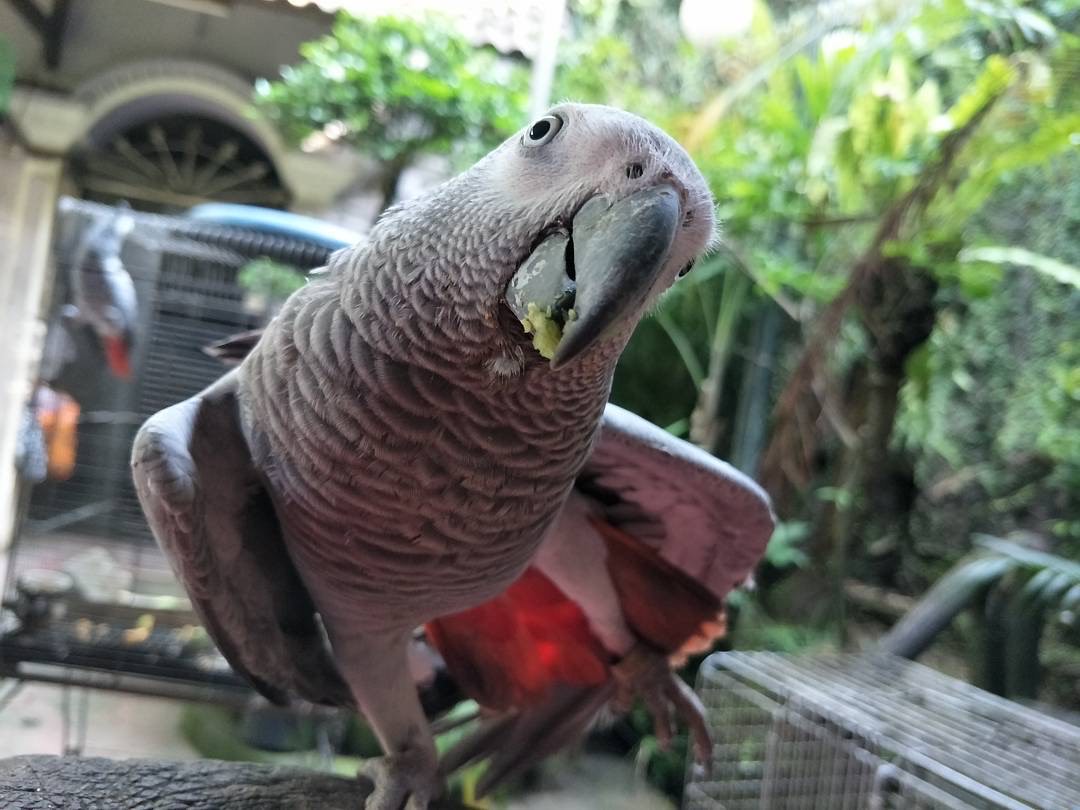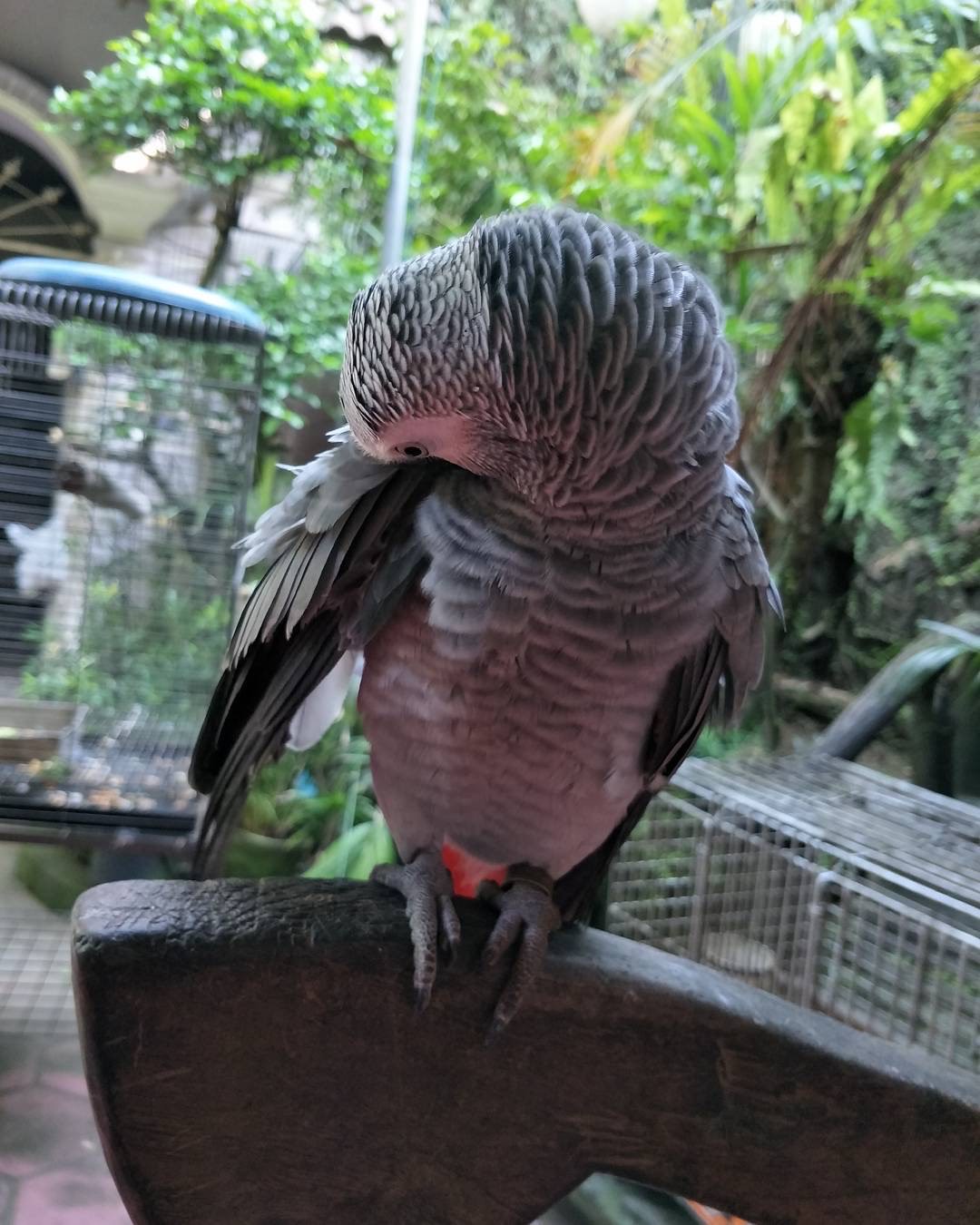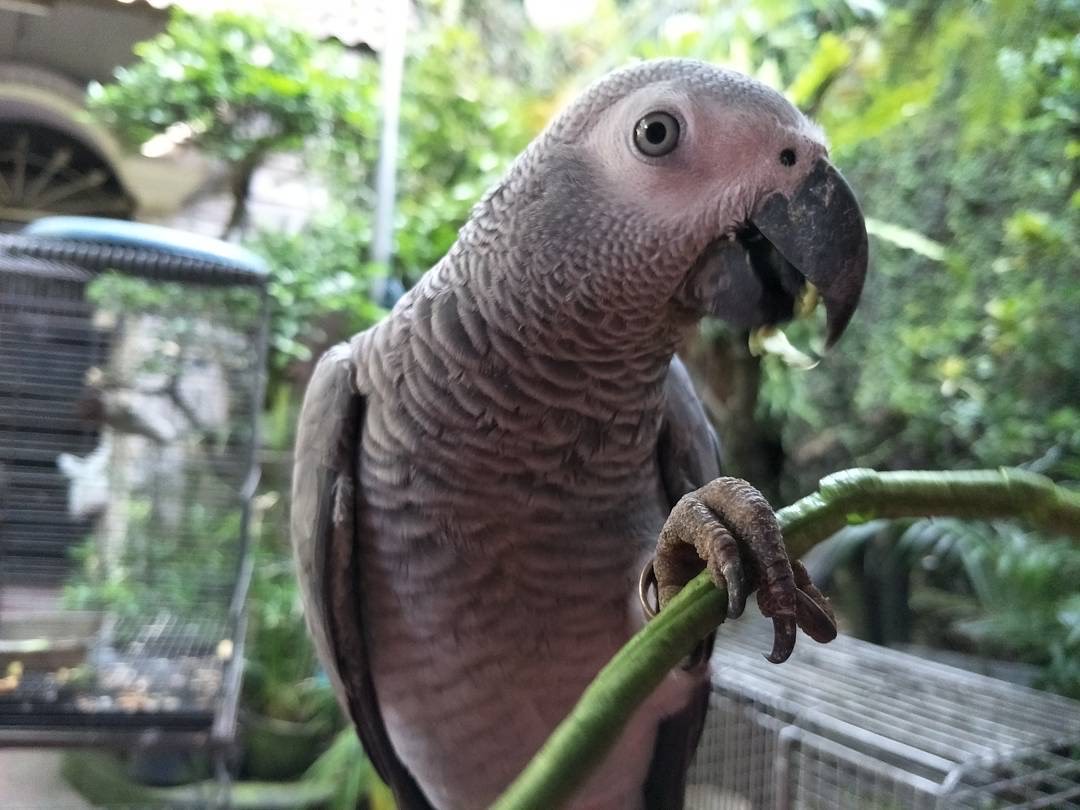🧠 Cognitive & Emotional Development
-
Highly curious: She’s exploring everything — her cage, and environment. This is a learning phase, and she’ll test things with her beak (chewing, tapping, and nibbling).
-
Developing trust: She’s still forming opinions about people. Gentle, positive interactions now can shape her into a confident, friendly adult bird.
-
Sensitive and observant: African Greys are known for being emotionally perceptive. She may notice your mood and respond to your tone of voice or body language.
-
Smart but not talking much yet: Some Greys start mimicking words around 6–12 months, but most won’t develop strong talking skills until closer to 12–18 months.
🐦 Temperament Traits
-
Cautious but not shy: African Greys are naturally more analytical and watchful. She may observe new people or toys for a while before interacting.
-
Mildly clingy: At 6 months, she may want to be near her bonded person often but is also developing some independence.
-
Can be moody: Like a teenager, she may go through phases where she’s more cuddly or more aloof. This is normal and part of developing autonomy.
-
Not hormonal yet: Puberty and hormone-related behavior typically start between 12–18 months, so she’s still in a relatively easygoing stage behaviorally.
🪶 Behavior to Expect
-
Preening and stretching: A healthy sign of comfort. She may also try to preen you as part of bonding.
-
Gentle vocalizing: Soft whistles, chirps, or clucks are common. Screeching or loud squawking is rare at this age unless she’s scared or frustrated.
-
Chewing: She needs safe, destructible toys to chew on. This satisfies her need to use her beak and keeps her mentally engaged.
-
Beak “testing”: She might gently bite or nibble fingers. This isn’t aggression — it’s how young parrots explore. If not redirected, it can become a bad habit.
👩🏫 Tips for Handling a 6-Month-Old Female Grey
-
Socialize daily: Expose her gently to new people, sounds, and environments to prevent future phobias.
-
Establish routines: Greys thrive on predictability. Set feeding, play, and sleep schedules.
-
Train gently: Start simple commands like “step up” and “come.” Use positive reinforcement (treats and praise).
-
Respect her signals: If she fluffs, backs away, or pinches, don’t force interaction. She needs to feel safe and respected.
-
Avoid overstimulation: Too much excitement, noise, or handling can lead to stress or fear responses.
- ❤️Her Personality
-
Emotionally intelligent
-
Cautiously curious
-
Mildly affectionate but not overly cuddly
-
Quick learner
-
Needs consistency, structure, and gentle leadership




